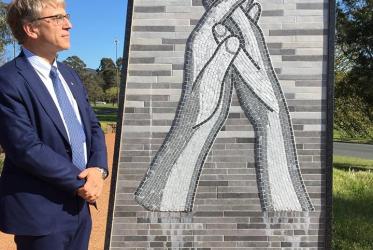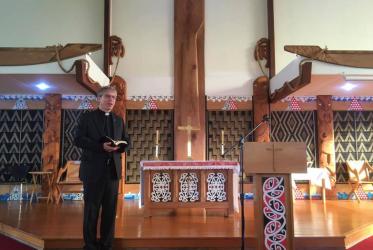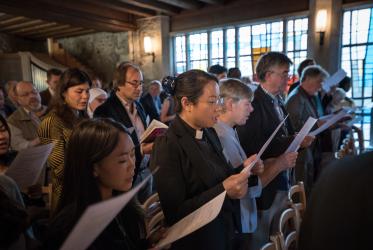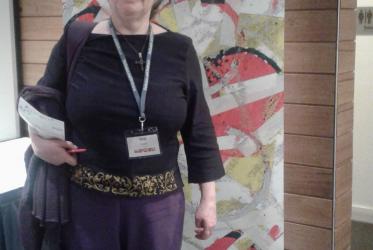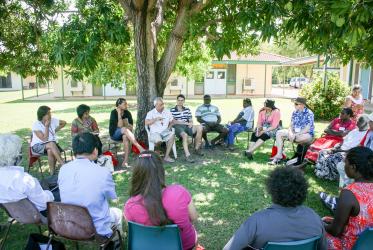Displaying 141 - 160 of 218
Women’s mentoring focus of Thailand gathering
23 April 2017
“Overcoming economic injustice” vision of WCC’s Athena Peralta
23 February 2017
New videos help congregations hasten HIV response
20 October 2016
WCC general secretary visits Aotearoa New Zealand
10 October 2016
Indigenous spirituality: can it transform injustice into justice?
01 September 2016
Religion: Way of war or path to peace?
30 June 2016
New Executive Committee members elected in Trondheim
28 June 2016



